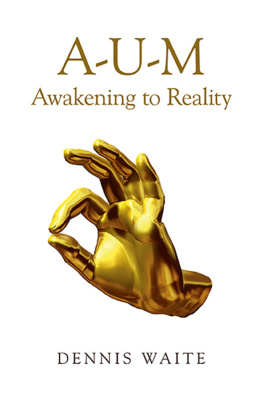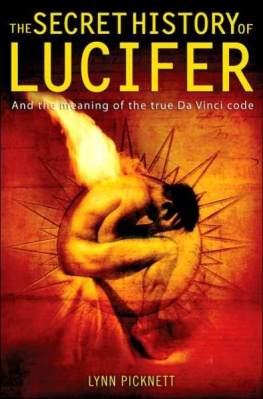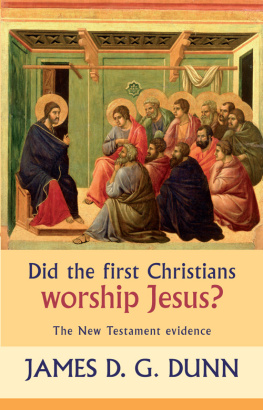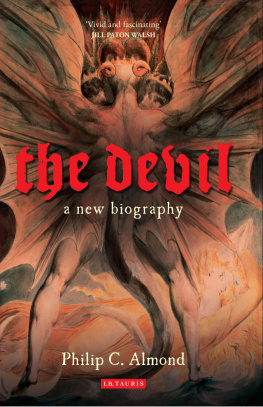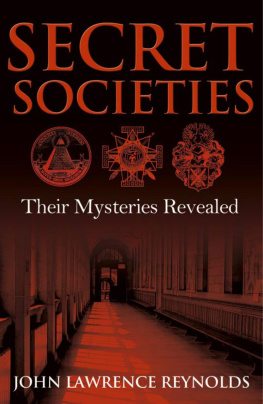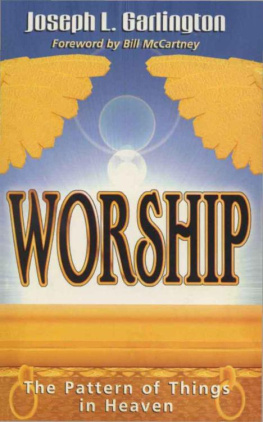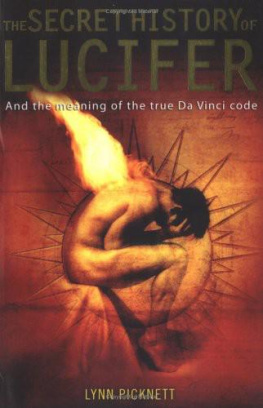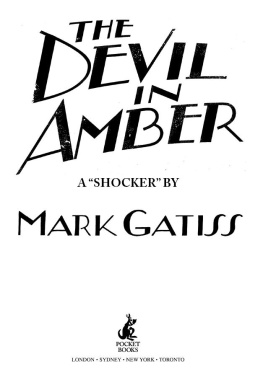Project Gutenberg's Devil-Worship in France, by Arthur Edward Waite
This eBook is for the use of anyone anywhere at no cost and with
almost no restrictions whatsoever. You may copy it, give it away or
re-use it under the terms of the Project Gutenberg License included
with this eBook or online at www.gutenberg.org
Title: Devil-Worship in France
or The Question of Lucifer
Author: Arthur Edward Waite
Release Date: April 30, 2007 [EBook #21258]
Language: English
*** START OF THIS PROJECT GUTENBERG EBOOK DEVIL-WORSHIP IN FRANCE ***
Produced by Suzanne Lybarger, Tamise Totterdell, Brian
Janes and the Online Distributed Proofreading Team at
http://www.pgdp.net
DEVIL-WORSHIP IN FRANCE
OR
THE QUESTION OF LUCIFER
A RECORD OF THINGS SEEN AND HEARD IN THE
SECRET SOCIETIES ACCORDING TO THE
EVIDENCE OF INITIATES
BY
ARTHUR EDWARD WAITE
The first in this plot was Lucifer. Thomas Vaughan
LONDON
GEORGE REDWAY
1896
[v]
PREFACE
The term Modern Satanism is not intended to signify the development of some new aspect of old doctrine concerning demonology, or some new argument for the personification of the evil principle in universal nature. It is intended to signify the alleged revival, or, at least, the reappearance to some extent in public, of a cultus diabolicus, or formal religion of the devil, the existence of which, in the middle ages, is registered by the known facts of the Black Sabbath, a department, however, of historical research, to which full justice yet remains to be done. By the hypothesis, such a religion may assume one of two forms; it may be a worship of the evil principle as such, namely, a conscious attempt on the part of human minds to identify themselves with that principle, or it may be the worship of a power which is regarded as evil by other religions, from which view the worshippers in question dissent. The necessity for this distinction I shall make apparent in the first chapter of this book. A religion of the darkness, subsisting under each of these distinctive forms, is said to be in practice at the present moment, and to be characterised, as it was in the past, by the strong evidence of miracles,in other words, by transcendental phenomena of a very extraordinary kind, connecting in a direct manner with what is generically termed Black Magic. Now, Black Magic in the past may have been imposture reinforced by delusion, and to state that it is recurring at the present day does not commit anyone to an opinion upon its veridical origin. To say, also, that the existence of modern diabolism has passed from the region of rumour into that of exhaustive and detailed statement, is to record a matter of fact, and I must add that the evidence in hand, whatever its ultimate value, can be regarded lightly by those only who are unacquainted with its extent and character. This evidence is, broadly, of three kinds:(a) The testimony of independent men of letters, who would seem to have come in contact therewith; (b) the testimony volunteered by former initiates of such secret associations as are dedicated to a cultus diabolicus; (c) the testimony of certain writers, claiming special sources of information, and defending some affected interests of the Roman Catholic Church.
My purpose in this book is to distinguish, so far as may be possible, what is true from what is false in the evidence, and I have undertaken the task, firstly, because modern mystics are accused, en masse, of being concerned in this cultus; secondly, because the existence of modern Satanism has given opportunity to a conspiracy of falsehood which is wide in its ramifications, and serious on account of its source; thirdly, because the question itself has awakened considerable interest both within and without transcendental circles, and it is desirable to replace hazy and exaggerated notions by a clear and formal statement.
I have connected the new diabolism with France in my title, because the evidence in each of its kinds has been filed by French writers, and we have no other source of information. So far as that evidence is sound, we have to thank France for producing it; but, on the other hand, should it prove that a whole city of invention has been constructed, with all its spires and gateways, upon a meagre basis of fact, it is just that French imagination should have full credit for the decorative art which has adorned this Question of Lucifer.
The plan of my work had been sketched, and a number of chapters written, when I found myself to some extent preceded by a writer well known to occultists under the pseudonym of Papus, who has quite recently published a small brochure, entitled Le Diable et LOccultisme, which is a brief defence of transcendentalists against the accusations in connection with Satanism. I gladly yield to M. Papus the priority in time, which was possible to a well-informed gentleman, at the centre of the conspiracy. His little work, however, does not claim to be either a review or a criticism, and does not therefore, in any sense, cover the ground which I have travelled. It is an exposition and exoneration of his own school of mystic thought, which is that of the Martinists, and I have mentioned it in this connection in its proper place.
CONTENTS
| PAGE |
| Preface | v |
| CHAPTER I |
| Satanism in the Nineteenth Century |
| CHAPTER II |
| The Mask of Masonry |
| CHAPTER III |
| The First Witnesses of Lucifer |
| CHAPTER IV |
| Ex Ore Leonis |
| CHAPTER V |
| The Discovery of M. Ricoux |
| CHAPTER VI |
| Art Sacerdotal |
| CHAPTER VII |
| The Devil and the Doctor |
| CHAPTER VIII |
| Dealings with Diana |
| CHAPTER IX |
| How Lucifer is Unmasked |
| CHAPTER X |
| The Vendetta of Signor Margiotta |
| CHAPTER XI |
| Female Freemasonry |
| CHAPTER XII |
| The Passing of Doctor Bataille |
| CHAPTER XIII |
| Diana Unveiled |
| CHAPTER XIV |
| The Radix of Modern Diabolism |
| CHAPTER XV |
| Conclusion |
[1]
DEVIL-WORSHIP IN FRANCE
CHAPTER I
SATANISM IN THE NINETEENTH CENTURY
If a short time ago that ultimate and universal source of reference, the person of average intelligence, had been asked concerning Modern Diabolism, or the Question of Lucifer,What it is? Who are its disciples? Where is it practised? And why?he would have replied, possibly with some asperity:The question of Lucifer! There is no question of Lucifer. Modern Diabolism! There is no modern Diabolism. And all the advanced people and all the strong minds would have extolled the average intelligence, whereupon the matter would have been closed hermetically, without disquieting and unwelcome investigations like the present.
The Great Teacher of Christianity beheld Lucifer fall from heaven like lightning, and, in a different sense, the modern world has witnessed a similar spectacle. Assuredly the demon of Milton has been cast down from the sky of theology, and, except in a few centres of extreme doctrinal concentration, there is no place found for him. The apostles of material philosophy have in a manner searched the universe, and have producedwell, the material philosophy, and therein is no question of Lucifer. At the opposite pole of thought there is, let us say, the spiritualist, in possession of many instruments superior, at least by the hypothesis, to the search-lights of science, through which he receives the messages of the spheres and establishes a partial acquaintance with an order which is not of this world; but in that order also there appears to be no question of Lucifer, though vexed questions there are without number concerning unprogressed spirits, to say nothing of the elementary. Between these poles there is the flux and reflux of multitudinous opinions; but, except at the centres mentioned, there is still no question of Lucifer; it has been shelved or dropped.





